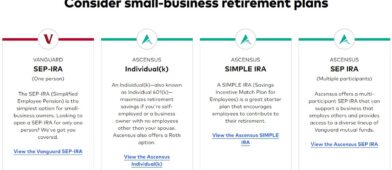Investing is simple. (no that's not the shocking fact)
Make regular contributions into an index fund, ensure that you are diversified, wait, and shift into more conservative investments as you near the age you want to withdraw the funds. (no, that's not it either)
Everyone knows this! They've known this for eons!
Here's the problem… it's also BORING. Boring with a capital B. O. R. I. N. G.
You can't sell magazines, blog posts, or television shows with that idea. You can't make money as a broker with that idea. You can't make money as a financial expert with that idea. It's too simple, it lacks excitement, and anyone can do it themselves. Good luck getting investment into your hedge fund!
In 2006 at Berkshire Hathaway's annual meeting, Warren Buffet offered up a bet.
The bet? He could pick an investment that will beat any hedge fund manager over a period of 10 years. Head to head. Your best versus my best.
Protege Partners, a hedge fund founded in 2002 and now with approximately $2 billion in assets under management, took him up on the bet.
The stakes? Just a million bucks. No big deal to billionaires.
Here's the best part…
Warren Buffet's pick? An S&P 500 index fund at Vanguard! Ha!
One of the best investors in the world — Warren Buffett! The Oracle of Omaha! — chose an index fund!
When the money is truly on the line… you go with an index fund. (yep, that's the fact!)
The Worst Kept Secret on Wall Street
Hedge fund and investment portfolio managers rarely beat index investing, especially after they take their management fee and taxes. Actively managed mutual funds cannot beat index investing, especially after fees and taxes. It's hard to beat the market when you have to pay over 1% each year in fees!
Unlike many hedge funds, Buffett's pick is a fund you can buy if you have $3,000 (the minimum). It costs you nothing to buy or sell (no sales load) and has an expense ratio of 0.17% (0.05% if you get the Admiral shares). If you invested $100,000, it's just $170 a year. Your cell phone probably costs more. Way more.
Planet Money did a story about this bet and how it's doing, with a little under two years left. They give the story a little more color with a look at both sides of the bet (it's 21 minutes and entertaining, definitely listen to it when you can), but I bet you can guess how it's going…
How's the bet doing? At the end of 2015, the index fund is up 66% and the hedge fund is up only 22% (remember the market fell sharply, ~45%, in 2008). There is almost no way the hedge fund can make up the gap in two years.
Who Doesn't Want You To Know?
The investment establishment. Other brokers. Actively managed mutual funds. Hedge fund managers and salespeople. People who make money off those higher fees or when you trade stocks, options, and other assets.
Those trillions of dollars in index funds aren't in other funds. Actively managed funds charge north of 1% in fees. Vanguard charges a fraction of that. That's billions of dollars a year the establishment isn't earning (like $40+ billion) and you know they aren't happy about that!
Do you know when those folks make money? When you buy and trade stuff. Even buy and hold is too boring for them. Pay $5 to buy a stock and hold it for ten years — they won't make another FIVE DOLLARS until you sell. $10 in 10 years? Ha — good luck paying for those executive shirts where the collars don't match the shirt.
This is not new news… it's just not IN the news
The gauntlet was thrown in 2006 by Warren Buffet, but the knowledge that actively managed funds can't beat index funds has been around for a very long time.
I remember reading about it as a teenager, in the mid-1990s, on The Motley Fool (I found this article from 1999 — “The average actively managed stock mutual fund returns approximately 2% less per year to its shareholders than the stock market returns in general.”).
It's not new news, it's not in the news because it's hard to write that story more than once.
And it's hard to get advertising from the financial establishment if you're telling folks they don't need the financial establishment. 🙂
(plus, how many teenagers would invest in boring stuff?)
Why Doesn't Everyone Invest in Index Funds?
A lot of people do… trillions of dollars are in index funds. But a lot of people don't…
… because index investing is boring. Buy and hold is boring.
It's boring to write about too. How many times can this article be written? Once. If another column is due next week… what then? 🙂 I'm fortunate in that I don't have that pressure!
That's why you get articles about how a billionaire warns about index funds or whether “passive investment is hurting the economy.”
Do you know what else is boring but made “more exciting” by marketing and the news? Losing weight. Weight loss is at its core a math problem — consume fewer calories than your body burns. No one said it was easy because ice cream is awesome, but that's not a weight loss problem. That's not a math problem. That's a human behavior problem.
Investing is the same way.
What do the most successful investors recommend?
Warren Buffet recommends index funds. In the 2013 letter to Berkshire shareholders, he share his instructions in his will (page 20, emphasis mine):
My money, I should add, is where my mouth is: What I advise here is essentially identical to certain instructions I’ve laid out in my will. One bequest provides that cash will be delivered to a trustee for my wife’s benefit. (I have to use cash for individual bequests, because all of my Berkshire shares will be fully distributed to certain philanthropic organizations over the ten years following the closing of my estate.) My advice to the trustee could not be more simple: Put 10% of the cash in short-term government bonds and 90% in a very low-cost S&P 500 index fund. (I suggest Vanguard’s.) I believe the trust’s long-term results from this policy will be superior to those attained by most investors – whether pension funds, institutions or individuals – who employ high-fee managers.
David Swensen, Yale's chief investment officer responsible for managing their endowment, also recommends index funds. Swensen beat the market for 20 straight years (1988 to 2008). If you wanted to make a bet with a manager, he's the guy to make it with… and he recommends index funds!
How I have my investing ice cream…
I'm not an expert when it comes to investing but I understand a lot about human behavior. I know I like a little excitement in my life.
Most of my long-term investments are in index funds. A small piece is invested in dividend growth stocks to scratch that itch. It lets me stretch my financial analysis muscles (a tiny bit), pick a few stocks, and enjoy the little shots of dopamine whenever I see a dividend come through. That's good enough for me.
If you have this itch, put 90% of your investments in index funds and carve off a little bit to do the “fun stuff.” Bet it on some tech companies or biotech companies. Who cares… it's fun money. It's like cheat days or that piece of chocolate, a little bit won't hurt you and you can make sure you don't do anything truly bad or dangerous.
Here are some good stock brokers for new investors in case you don't have an account just yet. They have low or no fees and ease you into the investing process.
As for your short-term savings, for something in the near future, keep those in short term investments that are not volatile. They won't be exciting but they'll be safe.
If you want to get “exotic,” mix in some real estate investing. You can get into it with less than $1,000.
Once you realize you're bad at it, you can always put it back into the index fund — there are no transaction costs! 🙂




Boring usually doesn’t make the news. 🙂
Yep 🙂
Great post. I agree with your investment strategy entirely and don’t see the point in paying fees for actively managed funds. Especially after reading about all the rampant corruption in The Big Short. Not that it was a shocker, but it really brought it to life.
Whenever you have large systems, you’ll have people looking for angles and advantages. It’s just part of life! 🙂
I heard that Planet Money story about Buffet’s bet and what really struck me was how the (soon-to-be) losers of Protege Partners looked at it. They blamed their poor performance on the market downturn. They basically said “well, if the market hadn’t tanked, we would be winning.” Umm… Yeah. That was the entire point of the bet! You can’t predict market downturns! They learned nothing from this.
If they don’t say and believe it, then it’s basically an attack on their whole business model. It’s like a devout Christian saying God doesn’t exist, it would fundamentally change who they are, what they believe (and have believed for a long time) and something that would be very difficult, if not impossible, to do.
Everyone needs to read this! We are 100% index funds with the money we have total control over. For our 401(k)s, which have more limited options, we do our best to minimize fees, but we can’t wait until we can roll that money over to Vanguard after we quit next year! And for those who want the excitement of picking stocks, I love your 90/10 suggestion. Super smart.
Share it with all of your friends!
401Ks are so tricky whenever the options are terrible, so I always went with the cheapest option that fit my need and then balanced it out with Vanguard funds.
The 10% “fun” (like how I called dividend investing “exciting and fun”?) really does take the itch away.
This is what everyone needs to hear…but very few want to tell it. Thanks for the article!
It’s the last (and only) one about index investing… 🙂
Awesome. Absolutely awesome. This is exactly why my money is in index funds. It is so true that the investment professionals do not want you to know this. They make money by advising assets and on commissions. With index funds, both are rendered useless. It is amazing that even the greatest investor of our times picked the index fund. Great article for beginner’s to see and maybe to convince a few people to join the club who have been bleeding management and commission fees.
Hard to make a living on 0.15% expense ratios … unless you’re Vanguard and amass billions.
Wow – this. This and only this. Investing really isn’t all that difficult, but a LOT of people, organizations (and politicians) bring in a ton of money by confusing people into forking over big bucks for almost nothing in return.
Great article!
Marketing works! Whether it’s lotion that will make you look younger or a pill that will make you live longer, people spend money on things they shouldn’t… including investments.
Great article. Thank you. I know I’ve been reading basically the same thing over and over in other similar posts from others but something about how you put it made it finally sink in for me. Nice work.
Thanks Anne-Marie! The reality is that we want to believe we can control the things that happen in the world and when it comes to investing, it’s best to get out of your own way. And if you can’t, give yourself just a little bit to mess around with and you’ll be juuuuust fine.
Great article.
90% index fund (VG) and 10% for excitement investing …or not -:)
🙂
Awesome post. Many people look down on indexing, and not coincidentally those people are ones who sell mutual funds or have a vested interest in companies that do.
Some argue that Warren Buffet and Peter Lynch made great money picking stocks and you can too! I would tell them I love playing basketball but I don’t think I would last very long on the court against Lebron James.
Focus on the things you can control, contribution rate and fees, and you will be better off than the vast majority of investors, and probably all of your friends.
Control those things and get out of your own way!
Ever play basketball even with someone who played on a team in college? Light years better than the average joe. 🙂
But isn’t the analogy a little different for investing, Jim? In investing there really is no one who can beat the average Joe, not even Warren Buffet or Peter Lynch. (Warren Buffet’s record over the past 15 years has been worse than Vanguard’s Value Index funds.) So professionals really do not do better than amateurs in picking stocks.
Very true, I wasn’t extending the analogy but just playing with what Syed was saying.
The original analogy is what you say – even the “pros” can’t beat the average Joe over the long run. You could argue that Buffet has to invest the way he does because of the vast sum of money he has and because he has to fill his days with something, but not everyone is like that. Trump would’ve been better served investing in an index fund, but then he wouldn’t be able to stay in the news!